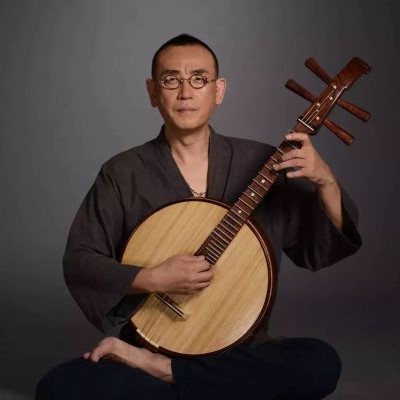Feng Mantian
Organized by 卷鹅 on 2022-03-02

Feng Mantian (March 13, 1963-), graduated from Harbin Normal University, a famous Chinese musician, Master Zhongruan, and Yueqin performer.
Proficient in plucked instruments from all over the world. He has represented the orchestra in nearly 30 countries including Switzerland, Russia, Austria, and the United States, and has performed at the Kennedy Center in the United States, Carnegie Hall, Salzburg Music Festival, Lucerne Culture and Arts Center in Switzerland, and Austrian Tyrolean Festival Theater. Performed on stage in an important art town.
Similar artist
Wang Zhongbing, a big coffee in the Ruan world, the inventor of modern Zhongruan and Daruan. He is a student of Yang Yinliu, and Yang Yinliu is also a student of A Bing, a complete teacher and apprentice.
read >>
Wei Yuru was born on May 26, 1960. He is currently a solo performer of the Central Chinese Orchestra and a national first-class performer. In 1989, he won the Gold Medal, the highest honor in performing at the 13th World Youth Festival.
read >>
Zhang Xinhua, male, a member of the Communist Party of China, a native of Anfu, Jiangxi, a performer of Liuqin and Zhongruan. Now he is the voice director of the plucked part of the Central Chinese Orchestra and a national first-class actor.
read >>
Involving musical instruments
Yueqin (Pinyin: yuè qín), a plucked musical instrument of the Han nationality, originated in the Han Dynasty. It has been spread in China, Japan, the Korean Peninsula, and Vietnam. It is also spread in China and Vietnam. The early Yueqin had a long neck and generally had about twelve frets. In the Qing Dynasty, the short-necked Yueqin with the eighth rank or so appeared, which is easy to play in the high-pitched area, and is often used for the accompaniment of opera. After the development and improvement of Ruan in the 1950s, Yueqin usually refers to the short-necked Yueqin in mainland China.
Zhongruan (pinyin: zhōng ruǎn) is a national plucked musical instrument with a long history in China. It is a traditional plucked musical instrument of the Chinese nation.
Because of the mellow, rich tone and wide range of sound, Ruan has become the main instrument in solo, ensemble, and duet in ancient times; in modern times, Ruan can play a powerful role in the orchestra, and Da Ruan and Zhong Ruan are mainly used in national orchestras.
Involved portfolio
夏浩东 - 1237 views
陆晨 - 1091 views
咖喱麦兜 - 884 views
陆晨 - 480 views
弥光 - 760 views
Involved news
Organized by 天井 on 2024-12-23
With the arrival of winter, the temperature drops sharply and the air is dry, and these environmental changes are not small challenges for the traditional plucked instrument of Zhongruan. In order to maintain the best condition and extend its service life, players need to take a series of special maintenance measures.
read >>
Organized by 阿轺 on 2022-09-28
Feng Mantian remembered that when he was a teenager, he spent two cents to buy a ticket to the Beijing Planetarium. That was the first time he walked into the planetarium, and it was the first time he saw galaxies there. It felt very mysterious. A few years ago, he saw the galaxies in the sky for the first time in Guazhou, Gansu. He used a voice to describe the real feeling of that moment - "Wow!"
read >>
Organized by 湛鹰 on 2022-07-26
To celebrate the 25th anniversary of Hong Kong's return to the motherland, Jiangsu Radio and Television Station Wosu.com planned to launch "Hello! "I'm from 1997" series integrates media reports, showing young people's vivid growth stories and wonderful struggle experiences with real lenses and delicate brushstrokes.
read >>
Organized by 亦寒 on 2022-06-19
Art is a way to accompany people's life, to change people's understanding of life, and to obtain permanent spiritual enjoyment. Zhongruan art is a noble art that should be contacted and cultivated from an early age. First of all, we have to cultivate Zhongruan's sensibility. What are some ways to cultivate Zhongruan's sensibility?
read >>
Organized by 没头脑 on 2022-06-17
The experience that music brings to people is very strange. Suddenly, a simple melody brings people into it, whether it is sadness, or joy, or passion, or beauty, as if I suddenly entered a very subtle world, free. Wandering in it, can not extricate themselves.
read >>
Popular artists
- 01 Zhang Xiuyan
- 02 Chen Tao
- 03 Li Muliang
- 04 Zhu Changyao
- 05 Zhang Gaoxiang
 渝公网安备 50010702504639号
渝公网安备 50010702504639号